Healthy Vision Awareness
We recognized Healthy Vision Awareness on Saturday, July 17th. I appeared virtually from paradise, in Maui, Hawaii. It was a fantastic event that taught us a ton about our eyesight. We want to thank our special guest speaker/contemporary artist Kurt Weston, who is a world renowned photographer and disability rights advocate. We also want to thank Shaunice Roberts for her tips and tricks on healthy eyesight and Monique Hooks for sharing her story and experience with partial blindness. Without our speakers, we could not help our supporters improve their eyesight and perspective!
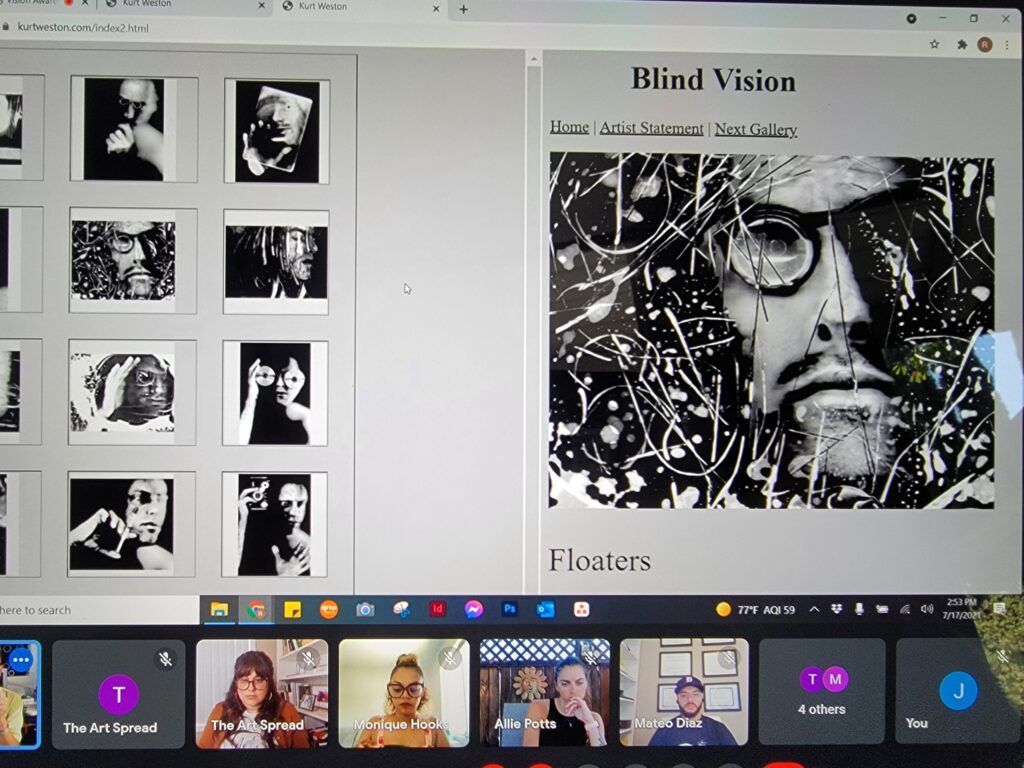
Rawan Ita diaz created a braille template and led an empathy exercise. We learned how it would be if we could not see, and how our other senses would have to assist us in perceiving the world.
Rawan and Mateo Diaz’s braille art looks beautiful! The piece highlighted the importance of our other senses and empathy by stating “I feel you.”
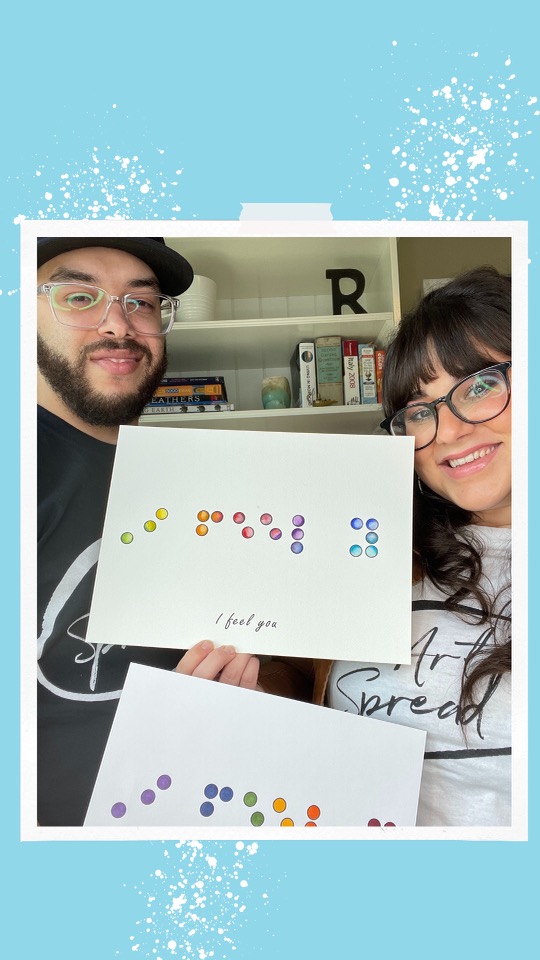
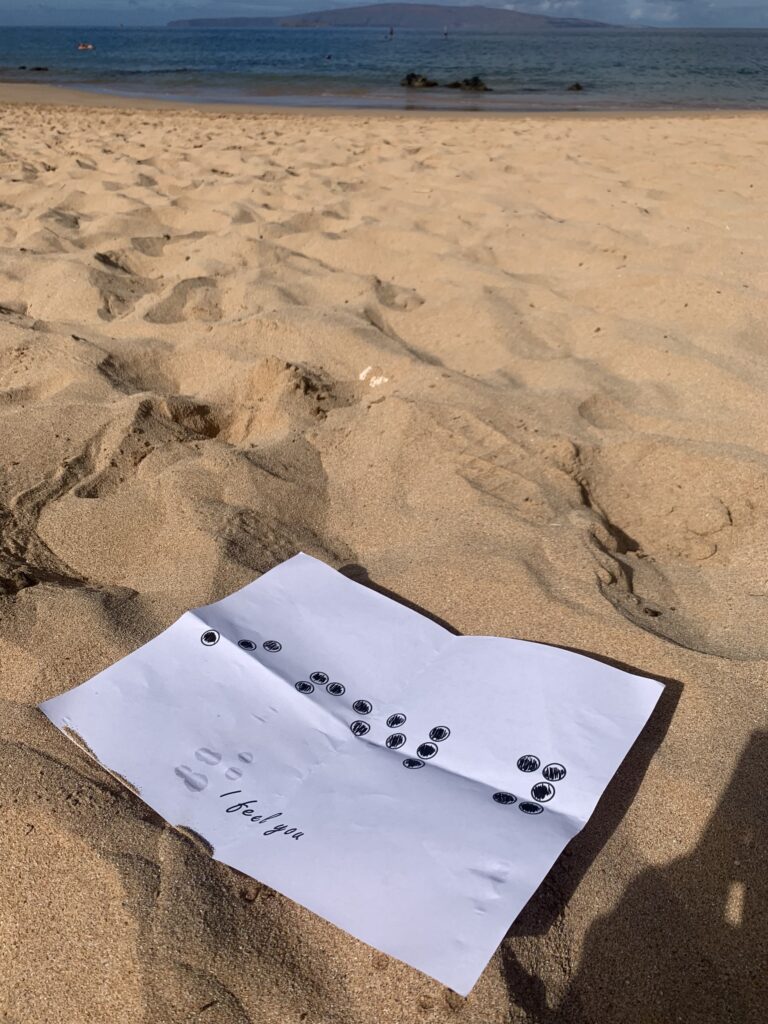
Check out my piece that I colored while in Maui!

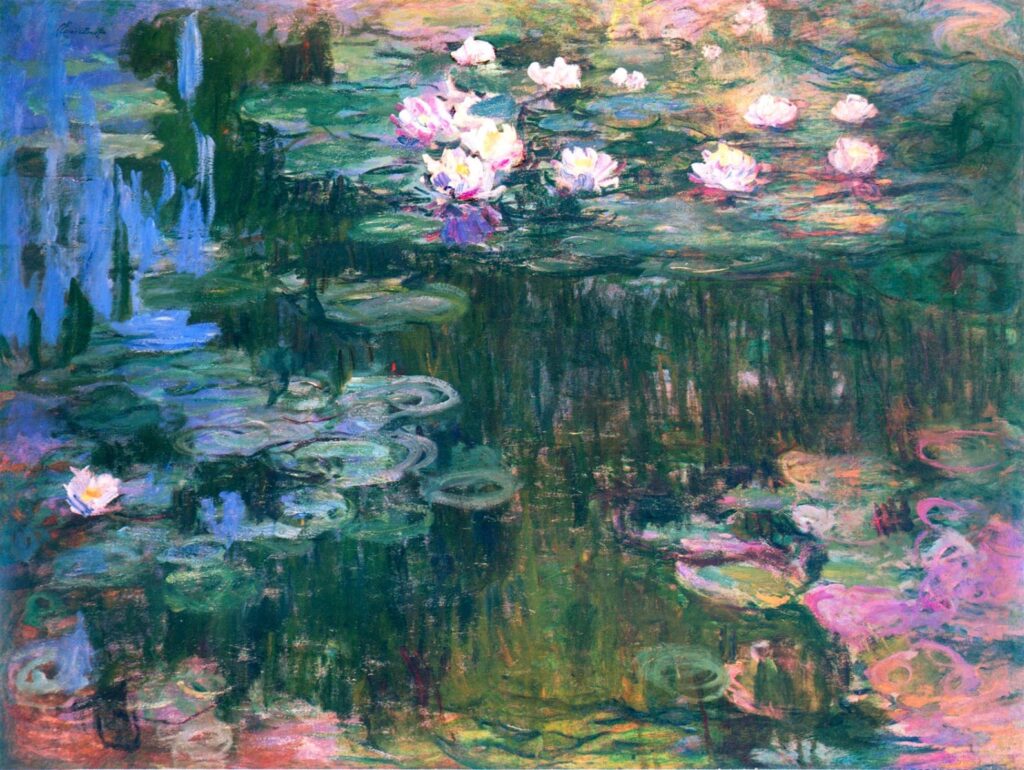
Perhaps Monet painted water lilies differently because that was how he saw the water as his cataracts condition worsened. Some of the paintings had a general reddish tone after he developed cataracts. Monet had to label his paint tubes so that he didn’t select the wrong color. Reds were becoming harder for him to recognize and colors in general were diminishing in intensity.
Monet realized that his paintings were becoming darker and less vivid. His vision worsened from sun exposure since he painted outdoors quite often. He was afraid to get surgery because of unsuccessful stories. He tried other methods such as prescription glasses but complained that everything had a bluish tint.
Monet finally underwent eye cataract surgery that corrected his vision and shocked him with clarity. He repainted some of his earlier pieces and destroyed others, shocked at the way the colors looked. Too bad Monet destroyed his work, little did he know it would sell in the 2000’s for over 80 million dollars! Monet’s Water Lilies series became his most recognized work.

Shaunice Roberts worked at Warby Parker. She had such in depth knowledge and tips for us about our eyesight.
Shaunice first talked about how often we should get our eyes checked, every 6 months to a year. We should also protect our eyes from the sun. If you are like me and don’t wear sunglasses (I don’t even own a pair!) then wear a hat to protect your eyes. Also, check the material of your glasses to ensure the clearest, best vision.
Shaunice described which frames fit your face best. Cat eyes work well with round faces. Square acetate glasses work for round and oval shape face.
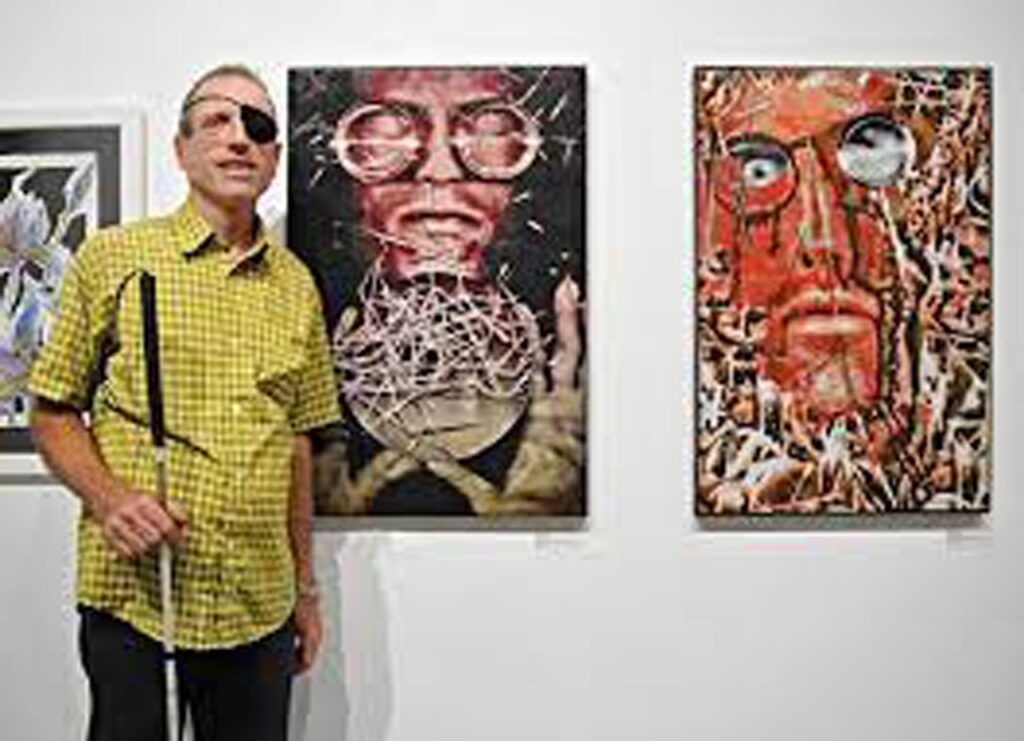
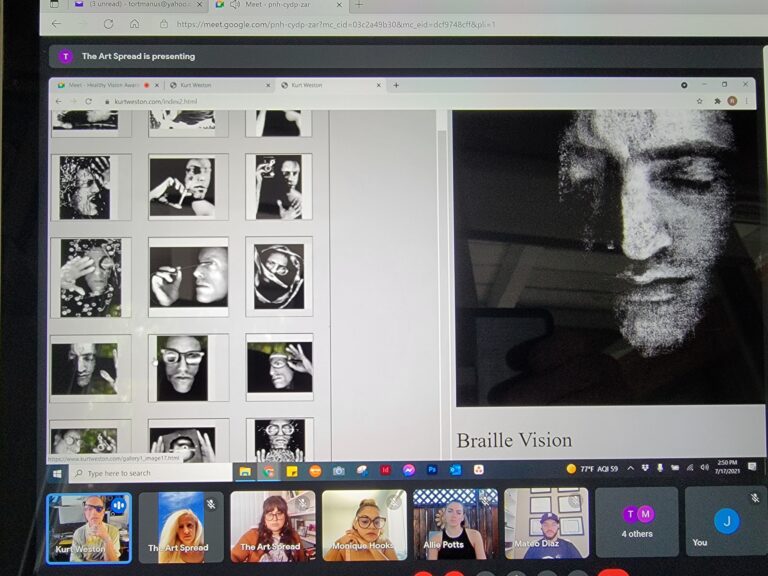
Kurt Weston told his story about becoming legally blind in 1991 after being diagnosed with HIV and how it impacted his artistry. His journey battling HIV and still capturing beautiful scenery through his eyes, despite his impaired vision, was inspiring. Kurt has been featured and recognized for his accomplishments worldwide, including being a recipient of the IReport Award given by CNN.
Kurt even encouraged his ophthalmologist to improve his office space by featuring Kurt’s photography in the office walls.
Despite his difficulty seeing, Kurt’s passion and purpose keeps him going. His experience tells us that we can do anything so long as we put our minds and heart into it.

Monique Hooks talked about her partial blindness from retinal occlusion in her right eye. She suddenly developed retinal occlusion last year. The doctors were shocked to see that she had it at a young age. They believed it was due to her diabetes. Monique opened up about how she has not told anyone about her eye condition out of fear that she would be forced out of the nursing program she is currently enrolled. Kurt shared great resources and comments to help ease Monique and reassure her.
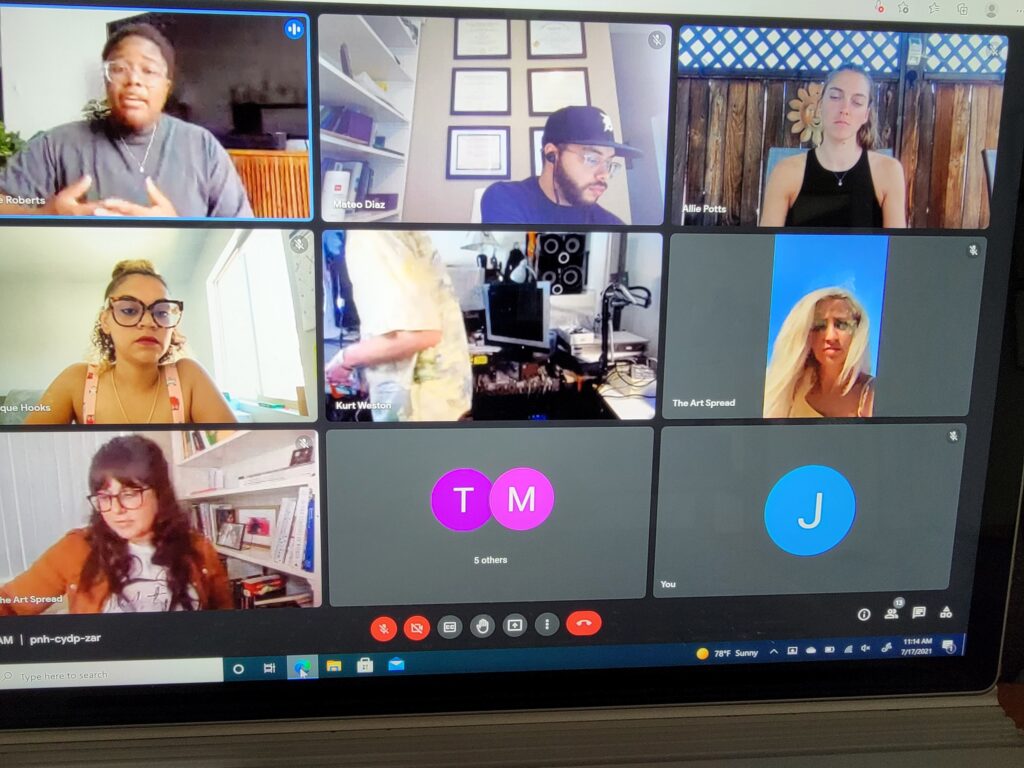
Please share your tips, comments, suggestions with us by leaving a comment below! We are always excited to host events that research issues and spread awareness. See you on August 21st!
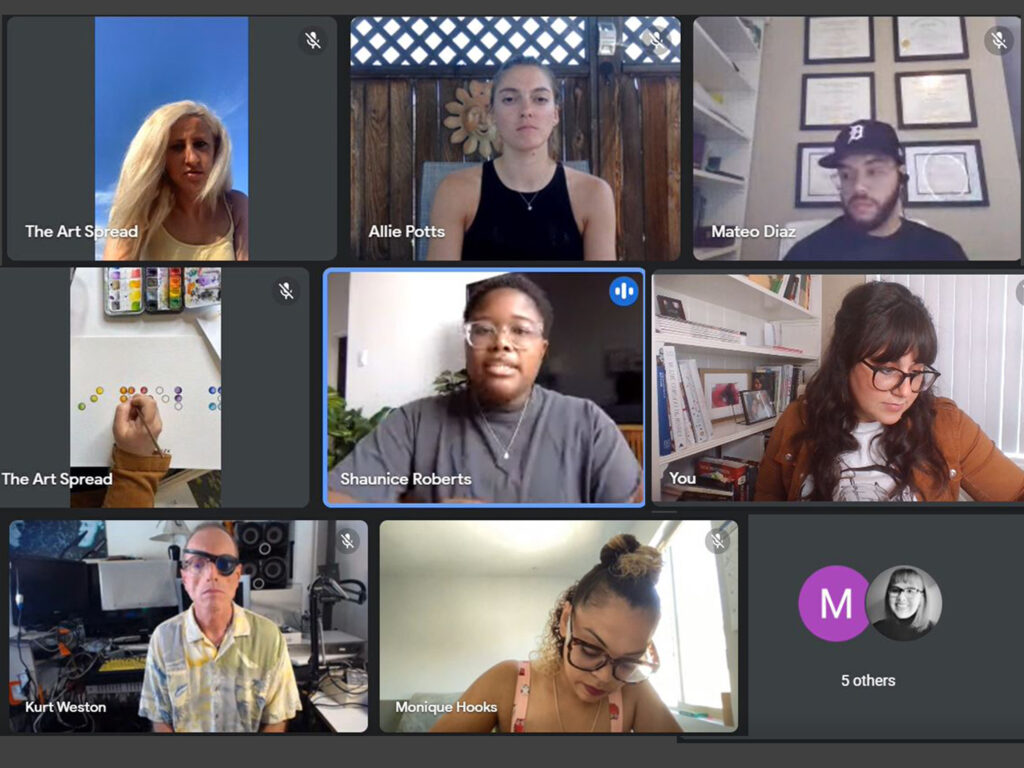
As someone who has had glasses on full-time, since the age of 2, I really appreciated this event! Wearing glasses is so mainstream, that we don’t talk about the struggles or the different type of disorders we have. We simply “just wear glasses.”
When I was young, my optometrist said I would most likely lose most of my vision and today optometrists are always very surprised that I can achieve 20/20 vision with glasses. With that being said, I would not be in this situation if my mom did not take me to my doctor when she did. Even at the age of 2 I was in trifocals, I had to wear an eyepatch (and would cry if someone at the store asked if I was playing pirates, ha), and had to continuedly go to exams and get my prescriptions adjusted. As an adult, I have grown out of most of that, but it was a lot of work! I mention this because so many of us don’t go to those annual exams and they are SO important. It’s also not just about your vision, getting your eyes dilated can help detect so many health issues – its’ just as important as going to your family doctor or dentist.
Thanks for putting this together having a variety of topics covered!
Kortney, we love that you addressed wearing glasses as being mainstream and visual impairment being an overlooked issue! That is so true and that is exactly why we are so glad to have people like yourself, Kurt, Monique, and Shaunice speak on the importance of vision health and disorders.
Your vision story is very incredible. We are sorry you had to endure that, especially at such a young age. Your mom is wise in pursuing your visual health so well! Many people don’t notice such problems or have an advocate that will do that. We commend you both for encouraging others to take their vision and health seriously. Having a conversation about addressing people with diverse-abilities is such a critical one. We hope to instill compassion and awareness into future generations so that other children don’t have to feel the way you did.
Thank you so much for participating in our discussion. We appreciate you and are happy that you enjoyed this event recap. Stay tuned for more tips and insight on issues such as this and more!